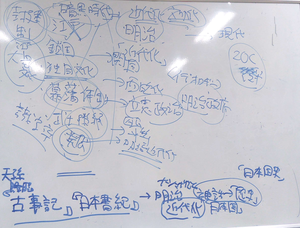【院生ゼミ】7月9日
【大学院】
This week was the last of the Spring Quarter. We discussed Chapter 9 of Osborne's book, titled "The Second World War in Southeast Asia," where an important topic is the impact and aftermaths of the Japanese invasion.
We followed the expansion of Imperial Japan before the beginning of the Pacific War in 1941. In this regard, the Japanese occupation of the French Indochina following the Fall of France in 1940, in the context of the
We watched some newsreels recording important events since the 1940s, some of which are available in the NHK's online archive.
We also shared what each of us learned about the Second World War at high school, which turned out to be significantly different from each other depending on where the person is from.
Finally, we covered three visual representations of the Thai-Burma railway construction by the POWs and forced laborers (romusha): a 1957 epic war movie (The Bridge on the River Kwai), and a 2013 personal psychological drama (The Railway man), and a Malaysian documentary about a former romusha of Indian descent.
In the discussion, we understood that the experiences of the Second World War have been remembered and represented from different perspectives in different countries, which we need to appreciate and be aware of.
We hope to see each other in person in a not so far future. Until then be safe and productive.
